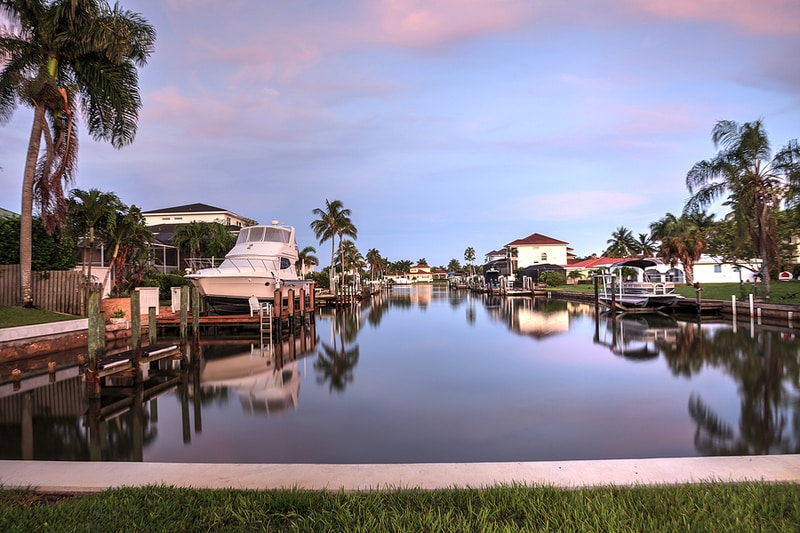Who hasn’t dreamed of owning a Florida home on the water? It just has a certain beauty and peacefulness to it. However, views waterfront come with a price and several other considerations. First, you want to work with an expert who is very knowledgeable about waterfront property. They will know specific questions to ask and how to help you handle potential issues. They will also make sure you are seeing the properties that best fit your needs. There is a big difference between waterfront and water view properties. We’ve made a list of some of the most important things to keep in mind when looking to live on the water.
- Choose the water that fits your needs.
Lakes, rivers, the intracoastal, and the ocean each have their own perks. How you plan to use the water? Do you need a place to dock your boat or would you just like to take your kayak out every once in a while? If you do have a boat, you will need to consider water depth, dock space, and lift needs. Are there size or speed restrictions? If you just want to kayak or go fishing, are there any restrictions around usage? Some HOAs have strict guidelines about what you can and can’t do with the body of water in your backyard. Again, an experienced agent can help you navigate these factors.
- Inspect carefully!
There are many ways water can affect a property. High levels of moisture can cause mold and mildew in your home. If you’re near the ocean, salt air can cause damage too. Because salt causes corrosion, you’ll want to take a close look at the A/C unit, pool equipment, door hardware, etc. Most importantly, make sure there are no signs of water intrusion or soil erosion, which can cause structural issues.
- Evaluate insurance requirements and costs.
Not all companies will insure waterfront homes. In addition, your insurance company may not offer all the types of insurance you need. For example, in Florida, you need wind insurance, flood insurance, and general hazard insurance. The increased risk of flooding and hurricanes and greatly impact your cost and coverage options.
- Beware of additional costs.
Besides insurance there are other items that can cost more than expected. In some municipalities, water and sewer rates are higher than inland. If it’s on a septic system and well water, you will want to make sure both have been maintained well. Sea walls, docks, and boat lifts can be very costly to repair and maintain. Lastly, depending where you are located, utilities may be less accessible and therefore more costly to upgrade, if necessary.
- Consider the property more than the structure.
You can always make improvements to the house but you can’t necessarily improve the views and location. Being on the intracoastal is nice but often, right on the other side of the water, is someone else’s back yard. If privacy is important to you, that might not be your ideal location. Water use can also affect your privacy. Will there be a lot of boats coming by your backyard? Is the water maintained well or does it turn green and gunky with dead fish washing ashore? Are you paying a premium for the property, just because it has a poor, partial view of water? Again, make sure the water and location, fit the lifestyle you want to live.
- Make sure the structure can survive severe weather.
Whether it’s on stilts, or a firm foundation, you want to make sure it’s ready to weather a storm. Make sure roofing straps are up to code. Install impact windows or hurricane shutters. Make sure door hardware is stainless steel so it doesn’t corrode. Keep trees on the property trimmed and well maintained. Hopefully, it’s an issue you won’t have to deal with but it is always best to be prepared.
- Determine a strategy for the property.
Will it be your primary residence or a second home? If you don’t plan to live there full time, it is a good idea to find someone to maintain the property. You don’t want to come down for vacation to find out water intrusion has filled your home with mold. Another option is to rent the property. This can help offset some of your additional costs. However, you want to make sure you’re aware of any rental restrictions in the area.
- Lastly, talk to neighbors.
Find out if they enjoy living in the area. Ask them how the water is affected by rain, storms, king tides, climate change, etc. See if they have had any water related issues. Is there any wild life you should be concerned about? Neighbors often have the best scoop on whether or not it will be a good investment for you.
There are some additional considerations necessary if you plan to build, rather than buy, a home on waterfront property. As always. feel free to reach out to us with questions or to see how we can help you create your dream home on the water!
